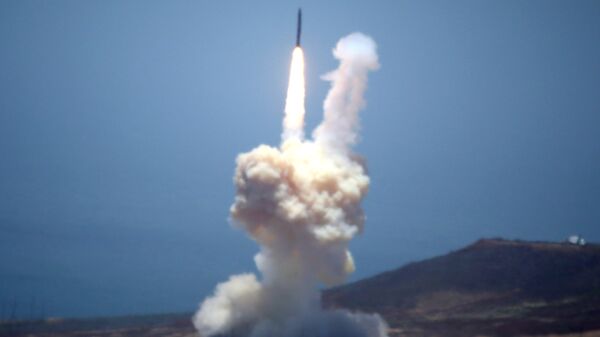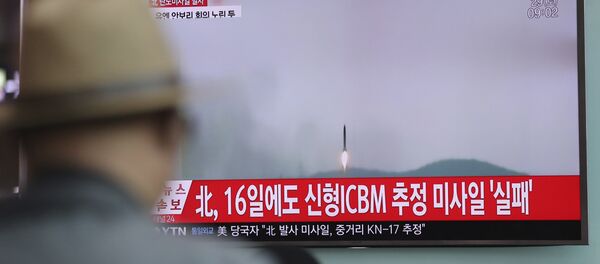"The advancements in the last six months have caused great concern to me and others, in the advancement of and demonstration of technology of ballistic missiles from North Korea,” Syring told the committee. "I would not say we are comfortably ahead of the threat; I would say we are addressing the threat that we know today."
lt is incumbent on his agency to assume that the US is in fact in harm’s way with regard to North Korea’s missile capabilities.
With an eye on Pyongyang, the US conducted a missile test in late May from Vandenberg Air Force Base in California, successfully shooting down a mock ICBM. Syring called the test an "incredible accomplishment."
The US Air Force conducted another test on Tuesday from the Reagan test site on the Kwajalein Atoll in the Marshall Islands.
The agency has expressed great confidence in its ground-based missile defense system, saying it has "demonstrated capability" to defend the US against provocation from the Democratic People’s Republic of Korea (DPRK), but some critics see the system, which has a history of inconsistent showings, as an expensive effort that doesn’t yield results timely enough to be valuable.
A memo that surfaced Wednesday noted that the Pentagon has upgraded its assessment of the US’ ability against the ICBMs like those the North possesses, a change from the "limited capability" assessment the system has received since 2012.
"GMD has demonstrated capability to defend the US homeland from a small number of intermediate-range or intercontinental missile threats with simple countermeasures,” the memo update read, according to Reuters.
Syring himself has reservations despite the successful testing, telling the committee, "I have reliability concerns with the system that have been systematically addressed in large part over the last, I'll say, six years, bit by bit. It's just not the interceptor, it's the entire system. We are not there yet… We are not done yet."
Pyongyang called the US’ recent test a "dangerous military provocation," through its state owned organ, the Korean Central News Agency (KCNA).




